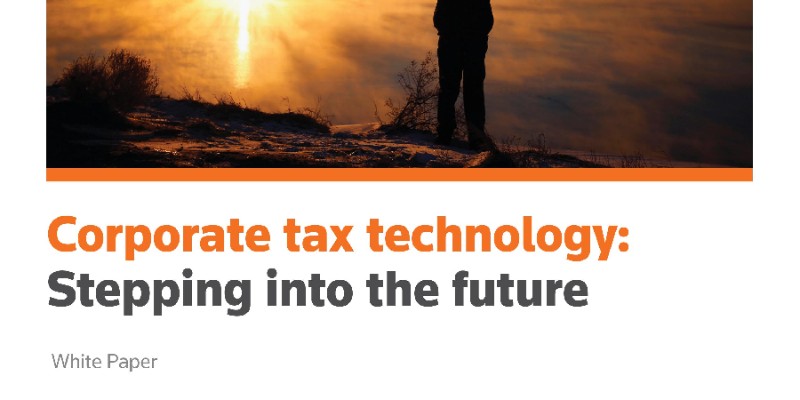Corporate tax technology: Stepping into the future
Published on 26 Jun 2021

The Covid-19 pandemic led to an increasing number of organizations embracing the use of technology to complete their tax functions. Even as the world recovers, the progress made with technology adoption for tax functions will continue. This white paper explores the future of corporate tax technology.
Thomas Reuters conducts an annual conference called SYNERGY. The goal of the conference is to help participants share their expertise, network with other professionals in the industry, and empower their circle of influence. The conference in 2020 had over 50 speakers, 100 sessions and was hosted by James Corden. One of the key highlights of SYNERGY 2020 was a panel discussion on the future of tax technology. The panel was made up of industry leaders who together had over 85 years of experience. Each of the panelists was a winner of the Taxoligist Award, which recognizes professionals who purport the use of technology to improve the effectiveness of tax functions.
See also: Communications Tax Survival Guide
The four panelists included:
- Sharon Rosiak: tax technology director at Thomson Reuters. Former tax technology lead at DuPont and Martin Marietta
- Ryan Lynch: chief technology and information officer, Global Tax Management
- Sheila Carlson: tax manager, transfer pricing, Hyatt Hotels Corp
- Sandy Faulkner: global tax reporting director and technology lead for JELD-WEN
Because of the pandemic, tax teams had to downsize and members started working from home. Talking about the impact of Covid Ryan Lynch commented that overnight many teams had become decentralized tax departments. They could no longer rely on hallway chats, face-to-face updates, or whiteboards to move projects and work forward. The crisis increased the importance of tech tools for collaboration and transparency. Tools are needed for workflow management, document management, data management, and other tasks.
3 topics on tax technology
During the discussion the panel covered the following topics:
Key challenges: What are the key areas that technology can help improve? They discussed areas like process inefficiency, compliance with tax reforms, and reducing cost.
Best practices and success factors: Panelists talked about the leading practices that help successful adoption of corporate tax technology. This included process assessment, technology and talent alignment, and change management.
The future of tax technology: Where is tax technology headed? What are the advanced tools being used? They also touched on the need for having a strategic roadmap to ensure the effective deployment of tax technology solutions.
Download this white paper to learn more about the topics mentioned above. The insights can help you improve your own tax functions. Subscribe to Whitepapers.online for more such quality resources.
